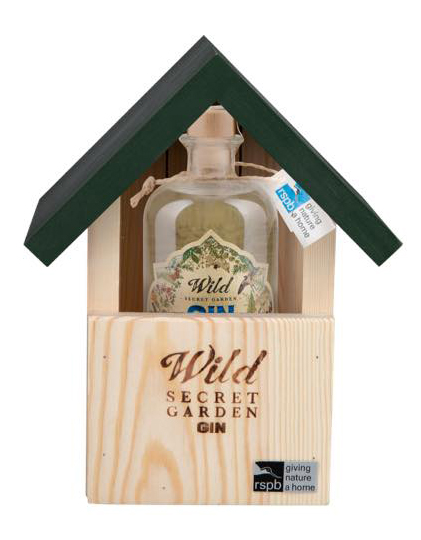Old Curiosity RSPB Wild Gin is one of the most eco-conscious and wildlife-friendly spirits around. Twenty percent of proceeds from the spirit go to RSPB Scotland to help preserve Scotland’s endangered Flow Country, and the box the Gin comes in can be re-used as a birdhouse. The Edinburgh-based distillery’s latest offering is inspired by threatened Caithness and Sutherland peatlands of north Scotland.
RSPB Wild Gin is the newest addition to the distillery’s Secret Garden Gin collection. It’s distilled with nine wild botanicals, some of which can be found in the world’s largest blanket bog in the northern tip of Scotland. It’s a twist on the classic London dry Gin that allows the flavors of the indigenous herbs to come through in the taste and aroma.

Alongside juniper, the Gin is created with freshly distilled sweet cicely, bog myrtle, dwarf birch, angelica root, winter savory, wooden avens, sweet woodruff, yarrow, and nettle. Most of which are grown and cultivated in the distillery’s very own Secret Gin Garden to ensure it does not disrupt the delicate ecosystem of the Flow Country.
Old Curiosity Distillery founder and herbalist Hamish Martin noted, “We’re raising awareness of the plight and importance of preserving this vital landscape and the RSPB’s incredible work in doing so. By using indigenous ingredients we’re emulating its spectacular environment whilst also creating a truly unique tasting gin.
“The RSPB’s strapline ‘giving nature a home’ is something which really resonates with us as an all-natural herb nursery and distillery. We produce all of our gins using natural products, grown on site in our own gardens and without the use of chemicals. We want to celebrate the natural environment through the drinks and flavours we create.”
The distillery’s intention to preserve nature goes all the way to their packaging. The swing tag is impregnated with British wild flower seeds which can be planted directly into the ground and the label itself is made from 30% grass.
Peatland is one of the most efficient carbon capture environments. Holding nearly 30% of all the carbon stored on land, they prevent carbon dioxide reaching the atmosphere. The Flow Country’s peat bogs alone store about 400 million tonnes – more than double the amount in all of Britain’s woodlands.


